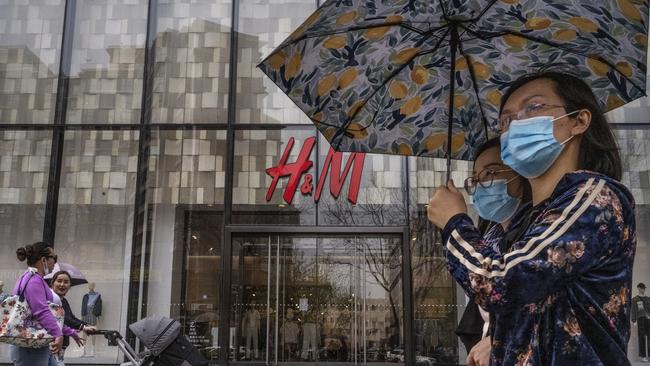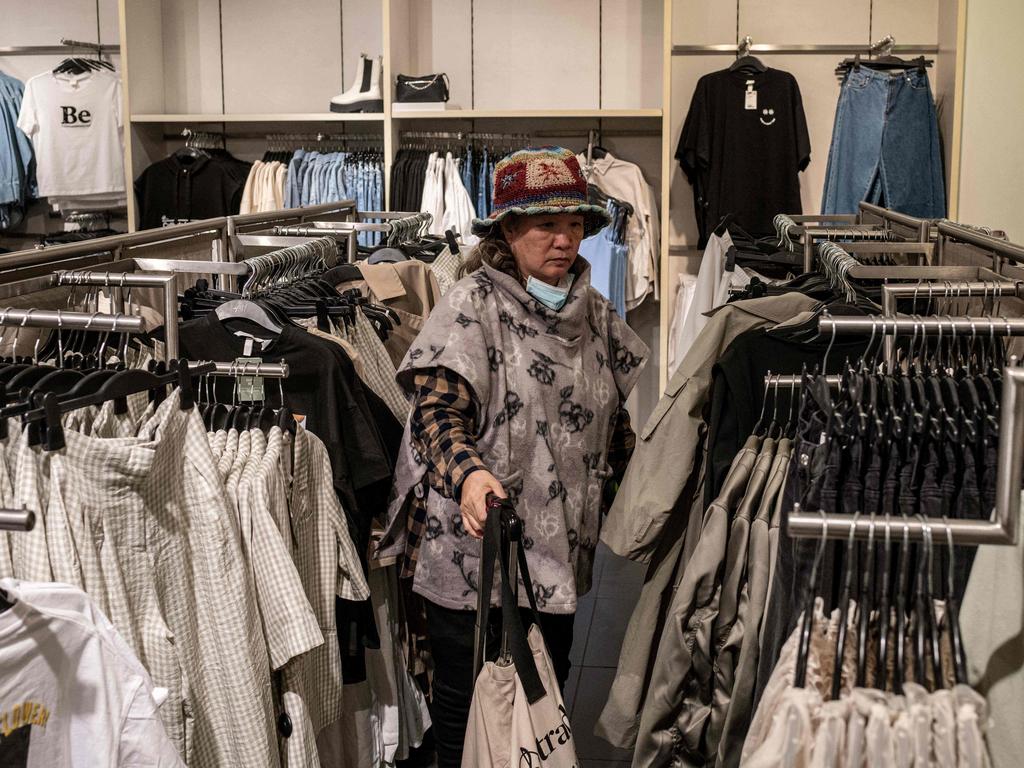Uighur cotton: Retail’s great wall of silence over China
Retailers and even investors are tiptoeing around belligerent Beijing.

The cream of British design is brought to life with cutting-edge Chinese technology at Burberry’s new store in Shenzhen. Using Tencent’s WeChat – China’s answer to WhatsApp – shoppers are encouraged to learn more about the clothes adorning the store’s 10 opulent rooms by scanning them with a bespoke program designed for the trench coat-maker.
Posting images to social media unlocks treats at the in-store cafe, where shoppers can partake in a “unique celebration of English and Chinese tea culture”.
Burberry’s flourishing relationship with Tencent has run into unexpected difficulties, though. Just days after releasing Burberry-designed outfits for avatars in Honor of Kings, one of China’s biggest video games, Tencent removed the British company’s chequered “skins” from the game.
While neither company has given an explanation for the rupture, Tencent’s decision is thought to be linked to a Chinese consumer backlash over Burberry’s membership of the Better Cotton Initiative (BCI). The non-profit organisation cut ties with cotton growers in Xinjiang, northwest China last year, a region where more than 500,000 people from ethnic minority groups are allegedly forced to work in fields that provide a fifth of the world’s cotton.
After Britain, the US, the EU and Canada slapped sanctions on China for human rights abuses in the region, the ruling Communist Party has orchestrated a consumer backlash against some of the most prestigious western brands.
Landlords to H&M have shut some of its 505 stores, with signs taken down at others. The brand has, in effect, been erased from the internet and from GPS navigation devices in China.
The strongarm tactics have elicited barely a murmur from the affected brands, which find themselves in the impossible position of having to appease China without compromising their ethical standards or upsetting their home governments. And while their investors are increasingly eager to trumpet their ethical credentials, none has been brave enough to stand up to China.
Under president Xi Jinping, China has detained more than a million Uighurs and other ethnic Turkic Muslims in the name of counter-terrorism. Last year, video footage emerged showing Uighurs being packed onto blacked-out trains and transported to key textile and technology factories to keep the economy running at the height of China’s lockdown.
Days after sanctions were imposed on four Chinese officials implicated in the mass internment, China’s Communist youth league denounced H&M with a social media post depicting slaves on a Mississippi cotton plantation. Official media outlets and patriotic citizens, some of whom are claimed to be government officials, whipped up a frenzy.
H&M is thought to have been singled out because it is from Sweden, where Uighur Muslims have been granted refugee status. Last September, H&M said it would not source cotton from Xinjiang and that it was ending a relationship with a Chinese producer over accusations of forced labour.
While the government in Beijing ignited the backlash, the flames were fanned by Chinese consumers, who are fed an entirely different account of China’s treatment of Uighurs. “Chinese people have a warped view because of a government campaign to say, ‘The Uighurs are not business savvy – we are doing good things for them and sending them to training centres,’ ” said Yaqiu Wang, a researcher at Human Rights Watch. Years of indoctrination had instilled a belief that the West is biased against China, she added.
Shaun Rein, managing director of China Market Research Group, which advises western brands on doing business in China, said consumers’ anger at western brands was “very real”.
“You see it spread across social media very quickly and then Chinese celebrities, out of self-preservation, say we’re not going to represent these brands any more because they are scared of the online crowd turning on them,” Rein said, adding that Alibaba and JD.com, China’s biggest e-commerce sites, removed brands for the same reason.
Dozens of Chinese celebrities cut ties with brands that are members of the Better Cotton Initiative. Among them were Nike, which expressed concern last year about reports of forced labour in Xinjiang, and Adidas. Huawei, the Chinese telecoms giant, said it had temporarily removed Nike and Adidas from its app store after receiving a significant number of complaints from the users of those apps.
China’s increasingly strident defence is raising uncomfortable questions for City institutions, too. The only notable public intervention to date has come from Aviva, whose chief investment officer, David Cumming, challenged HSBC and Standard Chartered over their support for a new security law in Hong Kong that hit democratic freedoms.
“We are debating internally how long we can stay silent. It’s one thing having a go at Sports Direct, but taking on China is something else,” said a senior figure at a leading UK asset manager. “Until we are willing to say something ourselves, how can we ask companies to speak out?”
Just like the brands caught up in the geopolitical crossfire, investors also have a lot to lose. BlackRock is launching a mutual fund business in China and Schroders operates wealth management services there in partnership with Bocom, a Hong Kong-based asset manager. Aberdeen Standard offers advisory services from Shanghai, and Aviva operates in China through a joint venture with the state-backed China National Cereals, Oils and Foodstuffs Corporation.
History shows that China’s state-sanctioned attacks on western brands tend to blow over, but there is a risk that they may become more frequent and more intense.
“The Chinese don’t play with little marbles – they go big,” said Paul Drechsler, former president of the CBI. “At the moment it’s politics first, business second – and for the companies in the middle it’s bloody painful.”






To join the conversation, please log in. Don't have an account? Register
Join the conversation, you are commenting as Logout